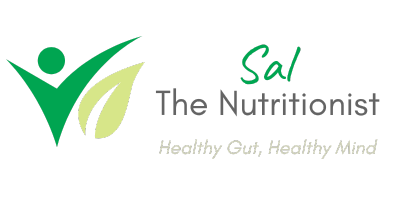Ever noticed that when you ask someone how they are, they never say they’re depressed. The standard reply is, ‘I’m so tired’, ‘So busy’, ‘Stressed’, ‘Anxious’. The word depression still induces a fear of stigma but yet it is a medical condition just like asthma, hypertension or diabetes. It is a biological, environmental and psychological condition and is not related to someone’s strength of character. Anyone can get it.
Do you ever wonder why depression is on the increase? Data from the Pharmaceutical Benefits Scheme in 2019 showed one in every eight Australians were using antidepressants, including 100,000 children. Did you know that depression is the number one cause of non-fatal disability Australia? Did you know that the World Health Organisation estimates that depression will be the number one health concern in both the developed and developing nations by 2030? I’m sure these numbers will increase with the pandemic in 2020. We hardly hear about these numbers in the media but we hear the statistics for heart attacks, breast cancer, diabetes etc.
These are impressive statistics, yet no one is really talking about the seriousness of this issue. I’m sure there are many people who do not take anti-depressants and are still suffering. I’m also sure there are many people who do not actually realise they’re depressed and/or they don’t know where to get help.
We can all feel ‘down’ and being sad sometimes is a normal response to life events. It’s part of what makes us human. Sometimes we just feel ‘blue’ for no apparent reason. Clinical depression is more than the occasional low mood and it needs to be addressed now. So how do you know if you’re depressed? I suffered from depression on and off throughout my life but because I was so involved in living my life and getting through each day, I didn’t realise it was depression. At the time, I also didn’t know how diet and nutrition could help. So how do you know if you have depression? You need to be experiencing at least 5 of the following signs and symptoms for at least 2 weeks:
- Depressed mood
- Loss of interest or pleasure
- Significant appetite or weight loss or gain
- Insomnia
- Psychomotor agitation or retardation. In other words, how slow or fast you are with your facial expression, movement and speech.
- Fatigue or loss of energy
- Feelings of worthlessness or excessive guilt
- Impaired thinking or concentration, indecisiveness
- Suicidal thoughts/thoughts of death
It’s not always easy to know whether someone else is experiencing depression. Sometimes changes in mood and behaviour happen slowly, and it’s easy to miss. People don’t always tell us about their thoughts and how they are feeling, especially if they are depressed and worried. When I was in my 20’s, a friend committed suicide. He was ‘the life and soul of the party’. No one could understand why. Why didn’t he say something, why didn’t he get help? That’s why it’s so important to check in and notice any differences to the way they usually behave or used to behave.
Diet and Nutrition
You’ve probably heard that diet is one of the most important things when it comes to helping with depression. But did you know about specific nutrients that you could be missing out on or you could have an imbalance.
Magnesium
Long term stress and anxiety can deplete us with this important mineral. Magnesium helps muscles relax and promote a calm mind and relaxed body.
The best magnesium rich foods include almonds, nuts, seeds, bananas, green leafy veggies, wholegrains, avocado, dark chocolate (in moderation!).
B vitamins
We need B vitamins for energy production and optimal brain function. B vitamins are vital for the production of our neurotransmitters (brain chemicals).
Include wholegrains (brown rice, brown basmati rice, quinoa, buckwheat, oats, amaranth, millet), meat, nuts, seeds, green leafy veggies, bananas, legumes, lentils in your diet.
Essential Fatty Acids
For a healthy brain and nervous system, omega 3 fatty acids are essential.
Foods include oily fish such as mackerel and sardines, mackerel, walnuts, flaxseeds, hemp seeds and avocado.
Vitamin D
Although Australians live in a sunny part of the world, it is still possible to be deficient in Vitamin D. Whether you live in a sunny country or in the northern hemisphere, it’s definitely worth getting your Vitamin D checked out.
Foods that contain Vitamin D are oily fish and eggs.
Protein
Without protein, we can’t produce our neurotransmitters which are essential for healthy nervous system function.
Protein rich foods include meat, dairy, legumes, nuts, seeds, eggs, tofu, tempeh.
Detective work
What you eat each day plays a large part in how you cope with everyday life. Eating these foods will definitely help but you need a qualified healthcare professional to give your diet a closer look.
You may not be able to absorb your food sufficiently resulting in nutrient deficiencies. These nutrient deficiencies may be affecting your brain chemical production. You may have increased inflammation or your cells may not be functioning properly. Your gut health may need improving. 90% of our gut communicates with the brain and only 10% from our brain to our gut. You may have been experiencing stress for a long period of time which depletes some nutrients. You may have an underlying biochemical imbalance. These are some of the factors involved.
Qualified holistic healthcare professionals like myself are there to take a full medical history and do functional medicine testing to work out what’s going on. It’s not a quick fix. Sometimes, it can take a while to identify the issue but it’s better to get help rather than leave it until it’s uncontrollable.
If you need help, online consultations are available. If you’d like a chat, I also offer a free 20 min virtual coffee. Click here to book.
Tags
[tags_all_in_one number=”20″ smallest=”11″ largest=”11″ unit=”px” separator=” ” orderby=”name” order=”asc” post=”true”]

